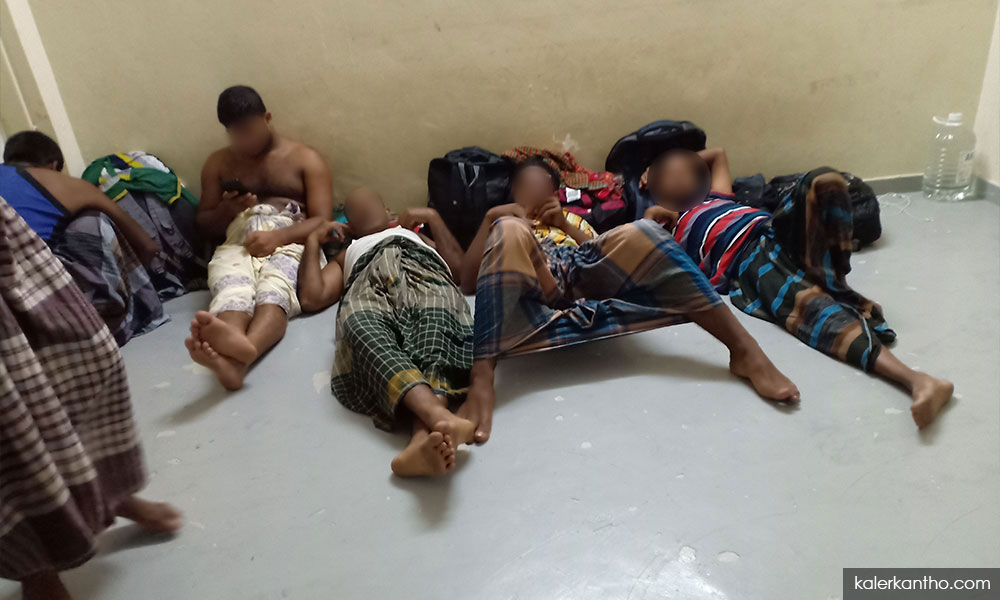Recently, there was a case of police brutality in a country that was once the envy of smaller, growing countries. This is a country which came out as a stronghold after World War II. A country that was somewhat victorious. These days, this country has come on the receiving end of brickbats on countless occasions.
The funny thing about the first sentence is that it could have been written in the 1960s, maybe during Ronald Reagan’s tenure, in 2017, or even two years ago – and it would ring equally sonorous.
Much like Covid-19, it appears that police brutality is something that certain sectors of society have just “got to live with”. What is that, if not a reflection of institutionalised inequity?
Malaysians have come out strongly against this, but are we really familiar with being suffocated, choking and then begging for our lives just to have it ended even faster? Perhaps - not in the way one would think though. Our nation’s workforce is choking and suffocating, but that’s not the same as fighting for one’s life now, is it?
There was a question on the oppression of wearing masks I noticed online, not too long ago. The question went something like: how oppressive is wearing a mask, from a scale of 1 to Orwell? I would say it is the latter, 20 times over. Is this what privilege sounds like? Maybe.
To say that having to wear a mask outside, struggling to breathe is an oppression seems tone-deaf. The true oppression is when a sector of society has to live through the same instances, hearing the same cries, the same pleas – to no avail. Repeating the same realities with different tragedies.
One would think that after a country has had a minority president, these issues will subside. Sometimes I wonder if that was just a fluke. Having a minority president – was it ever real? It was, but nothing has changed. So, what was the point of it all?
Having to hear another individual utter the words “I can’t breathe” again might just mean that we should accept the fact that something, somewhere is seriously wrong. Martin Luther King III thundered on Twitter, with the words of his father, MLK II: “A riot is the language of the unheard.” It made me think: what do minorities have, aside from words? Even this is at risk with certain kinds of Western leaders. We all know which ones I am talking about here.
Lots of people are also taking issue with the fact that a fellow minority was involved in the incident. It almost sounds as if the words are: if a fellow minority is involved, there is no problem, “it’s simply another day on the job”. This is simply an instance of brushing an issue under the carpet, convoluting an issue by trivialising it. Yes, we do not have all the facts, but what we see in front of our eyes ought to speak for itself. A human tragedy is a human tragedy, whether or not a fellow minority is involved.

The question then becomes: how can I be so audacious as to discuss this? Malaysia, too, is no stranger to xenophobia, to denigrating minorities or anyone from a country outside of Malaysia (aside from the usual favoured fare of “expats”).
The simple act of renting a place to live is so mired with prejudice, so who am I to discuss this? I attempted to rent a place once, let’s just say it was a fruitless endeavour. No need to guess why. Does that mean we should not raise our voices against brutality? No, of course not. Malaysia, however, needs re-evaluate its own unconscious biases.
Who among us hasn’t entered a lift and noticed an older aunty (everyone is family in Malaysia) – visibly – clutching her bag slightly harder when someone with a tad bit more melanin in their skin enters the lift? Who among us hasn’t heard someone quietly whisper the derogatory word that we shan’t speak of (to speak of it is to give it power)? Some would say this is ignorance. I would say: they’re right.
Will things change, then? Probably not. Society is a plague, but maybe highlighting things helps, somehow? Very unlikely. What are we left with? Close to nothing. There is one thing though: we have many African students, migrants and asylum seekers in Malaysia - maybe we can start by treating them as fellow members of the human race.
Then, and only then, can we begin to talk about outside atrocities. But, again, who am I to talk?
The views expressed here are those of the author/contributor and do not necessarily represent the views of Malaysiakini.

